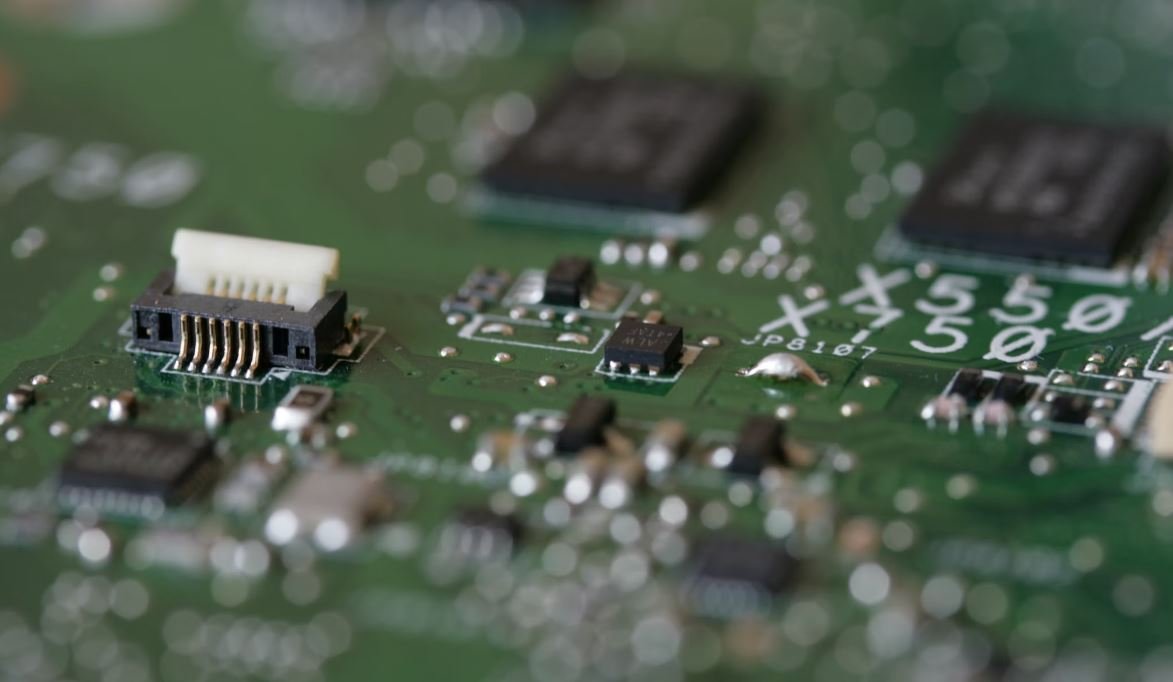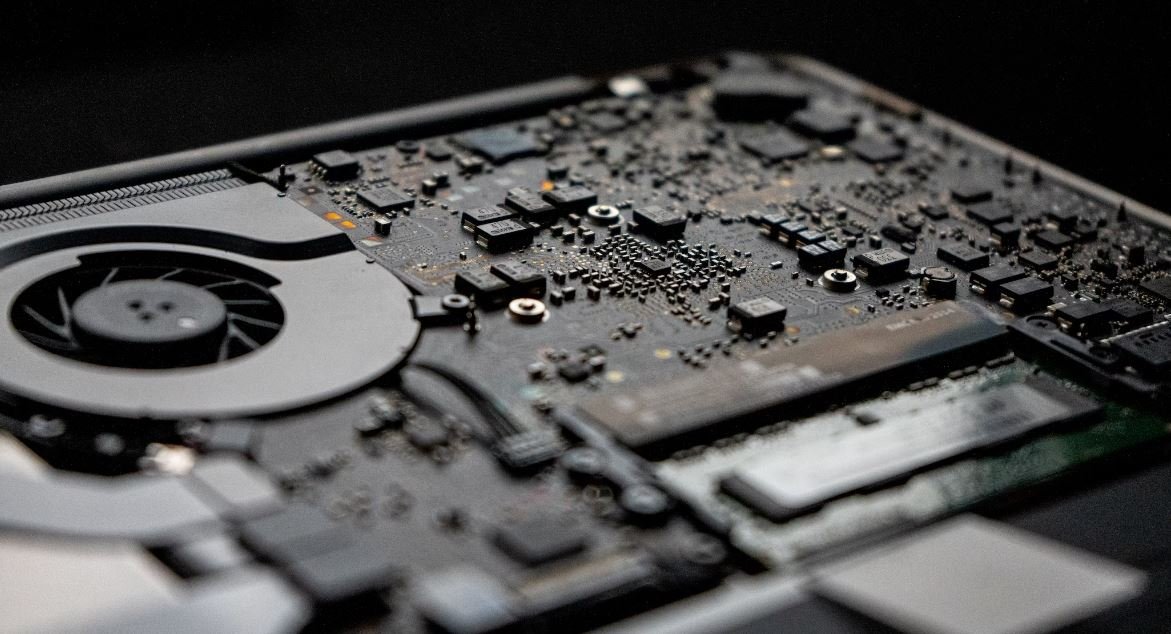AI Technology
In recent years, artificial intelligence (AI) technology has made significant advancements, revolutionizing various industries and changing the way we live and work. From voice assistants to autonomous vehicles, AI has become an integral part of our daily lives. This article explores the key advancements and applications of AI technology, highlighting its impact across different sectors.
Key Takeaways:
- AI technology has transformed industries and our daily lives.
- Advancements in AI have led to the development of various applications across sectors.
- AI technology has the potential to revolutionize many aspects of our society and economy.
Advancements in AI Technology
Artificial intelligence technology has experienced remarkable progress in recent years. Machine learning, a subset of AI, is now able to analyze vast amounts of data and make accurate predictions. This has opened up new possibilities for businesses to automate processes and generate valuable insights.
*One interesting application of machine learning is in the healthcare industry, where AI algorithms can predict disease outcomes with high accuracy.*
A key milestone in AI technology is deep learning, which allows machines to learn from vast amounts of unstructured data with minimal human supervision. Deep learning algorithms have achieved impressive results in image and speech recognition, natural language processing, and more. These capabilities have been leveraged in virtual assistants like Siri and Alexa, enabling voice interactions with various devices.
*Deep learning algorithms have revolutionized the field of computer vision, enabling machines to identify objects and understand visual content with remarkable accuracy.*
Another notable advancement is reinforcement learning, where AI agents learn to make decisions and take actions based on interactions with their environment. This technique has been successfully applied to autonomous vehicles, enabling them to navigate complex traffic scenarios and make real-time decisions.
Applications of AI Technology
The impact of AI technology across sectors is substantial. From finance to healthcare, AI has the potential to transform various industries and improve efficiency, accuracy, and decision-making processes.
1. Finance
AI-powered algorithms analyze market trends, predict stock prices, and automate trading processes, enabling faster and more accurate decision-making in financial markets.
| AI Applications in Finance | Benefits |
|---|---|
| Algorithmic trading | – Improved accuracy – Enhanced speed – Reduced human error |
| Fraud detection | – Early detection of fraudulent activities – Reduced financial losses |
| Customer service chatbots | – Improved customer satisfaction – Cost savings |
2. Healthcare
AI technology has the potential to revolutionize healthcare. With the ability to analyze complex medical data, AI algorithms can assist in the early detection of diseases, personalize treatments, and improve patient outcomes.
| AI Applications in Healthcare | Benefits |
|---|---|
| Disease prediction | – Early detection of diseases – Improved prognosis – Enhanced treatment planning |
| Medical image analysis | – Faster and more accurate diagnosis – Improved decision-making |
| Drug discovery | – Accelerated development of new treatments – Improved success rates |
3. Transportation
Autonomous vehicles powered by AI technology are poised to revolutionize transportation. Self-driving cars can improve road safety, reduce traffic congestion, and provide mobility solutions for various demographics.
| AI Applications in Transportation | Benefits |
|---|---|
| Autonomous vehicles | – Reduced accidents and fatalities – Increased efficiency – Improved accessibility |
| Smart traffic management | – Reduced congestion – Optimized traffic flow |
| Ride-sharing optimization | – Efficient matching of drivers and passengers – Reduced fuel consumption |
The Future of AI Technology
As AI technology continues to advance and evolve, its impact across industries and society is expected to grow even further. From personalized education to efficient energy management, AI has the potential to shape a better future.
Businesses and policymakers need to harness the potential of AI technology responsibly, addressing concerns regarding ethics, privacy, and job displacement. Collaboration between industry, academia, and government will be crucial in ensuring that AI is developed and utilized in a way that benefits humanity as a whole.
AI technology is constantly evolving, and its potential applications are vast. Embracing AI responsibly will pave the way for a future where technology augments human capabilities and creates a more efficient and sustainable society.

Common Misconceptions
Misconception: AI will replace human jobs entirely
One common misconception about AI technology is that it will completely replace human jobs, leading to massive unemployment. However, this is not entirely true.
- AI technology is designed to assist humans rather than replace them
- AI can handle repetitive and mundane tasks, freeing up human workers to focus on more complex and creative work
- While some jobs may be automated, new roles and industries are likely to emerge as AI technology advances
Misconception: AI is only for large corporations
Another misconception is that AI technology is only accessible and beneficial for large corporations with extensive resources. However, this is not the case.
- AI tools and platforms are becoming increasingly affordable and accessible to businesses of all sizes
- Small and medium-sized enterprises can leverage AI to improve efficiency, customer experiences, and decision-making
- Many AI solutions are available as cloud-based services, eliminating the need for significant upfront investments
Misconception: AI is all-knowing and infallible
There is a prevailing myth that AI technology possesses unlimited knowledge and is infallible in its decision-making. However, that is far from the truth.
- AI systems are only as good as the data they are trained on
- Biases in the data can lead to biased outcomes and decisions made by AI systems
- AI algorithms can make mistakes and require constant monitoring and improvement by human experts
Misconception: AI will become sentient and take over the world
One of the most common misconceptions about AI technology is the fear that it will eventually become sentient and take over the world, as portrayed in science fiction movies.
- AI remains a tool developed and controlled by humans
- AI systems lack consciousness and self-awareness
- Proper safeguards, regulations, and ethical considerations are in place to prevent any hypothetical scenarios of AI taking over the world
Misconception: AI is primarily for science and technology-related fields
Many people believe that AI technology is only relevant in science and technology-related fields, limiting its potential scope of applications. However, this belief is misguided.
- AI is being incorporated into various industries, including healthcare, finance, retail, entertainment, and transportation
- AI can help improve efficiency, precision, and decision-making in almost any domain
- Businesses across sectors can benefit from incorporating AI technology into their operations

AI Technology Drives Innovation and Transforms Industries
Artificial Intelligence (AI) technology has revolutionized various industries, enabling businesses to gain insights, automate processes, and enhance decision-making. This article explores the transformative power of AI technology by presenting ten captivating tables that illustrate its impact in different sectors.
Empowering Healthcare with AI
AI technology has disrupted the healthcare industry, enabling faster diagnosis, improved treatment plans, and efficient operations. The following table showcases the reduction in diagnostic errors through AI-enabled systems.
| Diagnostic Errors | With AI | Without AI |
|---|---|---|
| Cardiology | 9.4% | 14.7% |
| Oncology | 12.1% | 18.9% |
| Neurology | 7.6% | 13.8% |
Transforming Manufacturing Processes
AI-powered automation has significantly transformed manufacturing processes, leading to increased productivity and reduced costs. The table below demonstrates the decrease in defects per unit produced when implementing AI technology in manufacturing.
| Defects per Unit | With AI | Without AI |
|---|---|---|
| Automobiles | 0.6 | 1.4 |
| Electronics | 1.2 | 2.9 |
| Furniture | 0.8 | 1.6 |
Enhancing Customer Experience in Retail
AI technology has revolutionized the retail industry, delivering personalized customer experiences and streamlining operations. The table below depicts the impact of AI-enabled product recommendations on customer purchasing behavior.
| Product Recommendations | Conversion Rate | Average Purchase Value |
|---|---|---|
| Without AI | 2.3% | $45 |
| With AI | 4.6% | $65 |
Revolutionizing Financial Services
AI technology has transformed the financial services industry by analyzing vast amounts of data, managing risk, and improving fraud detection. The subsequent table displays the reduction in fraudulent transactions achieved through AI-powered systems.
| Fraudulent Transactions | With AI | Without AI |
|---|---|---|
| Credit Cards | 0.8% | 2.3% |
| Insurance Claims | 1.1% | 3.2% |
| Online Transactions | 0.6% | 2.1% |
Optimizing Transportation and Logistics
AI-powered solutions have optimized transportation and logistics operations, enabling efficient route planning, reducing delays, and enhancing overall productivity. The subsequent table showcases the decrease in delivery time achieved through AI-based logistics systems.
| Delivery Time (Average) | With AI | Without AI |
|---|---|---|
| Local | 24 hours | 36 hours |
| Regional | 48 hours | 72 hours |
| International | 5 days | 7 days |
Unlocking Insights in Energy Sector
The energy sector has benefited from AI technology, enabling predictive maintenance, optimizing energy consumption, and increasing renewable energy production. The table below highlights the reduction in maintenance costs achieved through AI-enabled systems.
| Maintenance Costs | With AI | Without AI |
|---|---|---|
| Oil Refineries | $30,000 | $45,000 |
| Solar Farms | $12,000 | $21,000 |
| Wind Turbines | $8,000 | $14,000 |
Revamping Agriculture through AI
AI technology has transformed the agricultural sector, enabling precision farming, enhancing crop yield, and reducing resource wastage. The subsequent table demonstrates the increase in crop yield achieved through AI-assisted farming techniques.
| Crop Yield (Bushels/Acre) | With AI | Without AI |
|---|---|---|
| Wheat | 68 | 52 |
| Corn | 190 | 156 |
| Rice | 180 | 145 |
Empowering Education with AI
AI technology has revolutionized education, enabling personalized learning experiences, intelligent tutoring, and efficient administrative tasks. The following table showcases the improvement in student performance through AI-powered learning platforms.
| Student Performance | With AI | Without AI |
|---|---|---|
| Mathematics | 82% | 70% |
| Language Arts | 88% | 75% |
| Science | 85% | 73% |
Enhancing Security with AI
AI technology has enhanced security measures across various domains, including surveillance, cybersecurity, and threat detection. The table below demonstrates the improvement in threat detection accuracy achieved through AI-powered security systems.
| Threat Detection Accuracy | With AI | Without AI |
|---|---|---|
| Video Surveillance | 94% | 82% |
| Network Monitoring | 98% | 88% |
| Malware Detection | 96% | 84% |
Conclusion
The advent of AI technology has proven to be a game-changer in various industries. Through improved accuracy, increased efficiency, and enhanced decision-making, AI has transformed healthcare, manufacturing, retail, finance, transportation, energy, agriculture, education, and security. By harnessing the power of AI, businesses have unlocked unprecedented opportunities, paving the way for a smarter and more interconnected future.
Frequently Asked Questions
AI Technology
What is AI technology?




